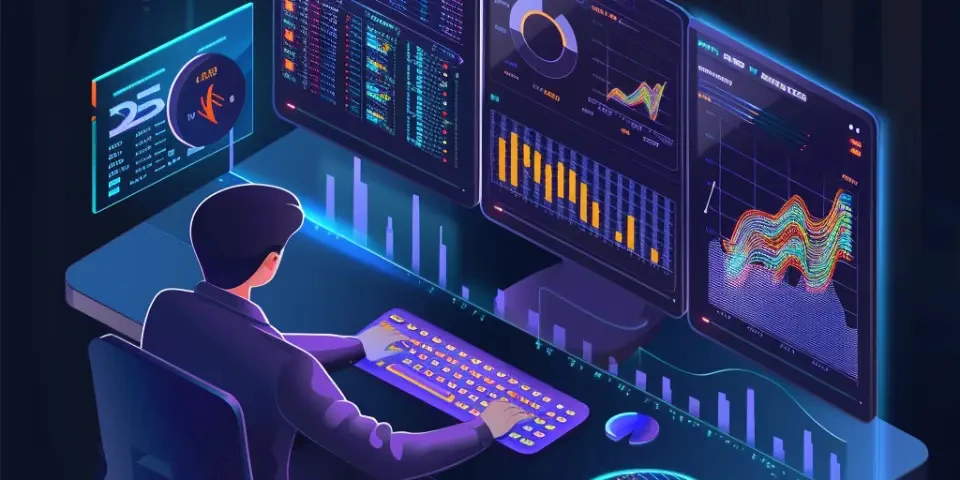Unlocking the Power of AI Revolutionizing the Way We Work
Artificial Intelligence (AI) has emerged as a revolutionary technology that is transforming various industries, revolutionizing the way we work, and enhancing our productivity and efficiency. With its ability to process massive amounts of data, analyze patterns, and make decisions, AI is unlocking a new era of possibilities. In this article, we will explore the key aspects of how AI is reshaping our work landscape.
1. Automation and Efficiency
AI-powered automation systems are streamlining mundane tasks and increasing overall efficiency. Intelligent chatbots are being used in customer service, reducing response times and improving user experiences. Automated data analysis is enabling faster decision-making processes, minimizing human errors, and optimizing resource allocation.

2. Enhanced Decision-Making
AI algorithms can analyze vast amounts of data to extract crucial insights. Businesses can utilize these insights to make informed decisions and drive growth. From predicting market trends to identifying potential risks, AI is empowering businesses to stay ahead of the competition.
3. Personalized Experiences
AI is revolutionizing the way companies interact with their customers. Machine learning algorithms enable personalization by understanding individual preferences and providing tailored recommendations. This enhances customer satisfaction and increases loyalty, leading to sustainable business growth.
4. Improved Healthcare
The healthcare industry has witnessed immense transformation with the adoption of AI. From diagnosis assistance to drug discovery, AI is augmenting healthcare professionals' capabilities. AI-powered medical imaging systems can detect anomalies more accurately and promptly, leading to early detection of diseases and better patient outcomes.
5. Smarter Manufacturing
AI is optimizing manufacturing processes by enabling predictive maintenance. By analyzing sensor data, AI algorithms can predict equipment failures, allowing proactive maintenance. This reduces downtime, enhances productivity, and saves costs for manufacturers.
6. Cybersecurity Advancements
With the rise of cyber threats, AI plays a crucial role in strengthening cybersecurity measures. AI algorithms can detect and prevent malicious activities in real-time, protecting sensitive data from potential breaches. This proactive approach is essential in combating evolving cyber threats.
7. Intelligent Assistants
Virtual assistant technologies powered by AI, such as Siri and Alexa, have become an integral part of our daily lives. These intelligent assistants perform tasks like setting reminders, searching the web, and providing personalized recommendations. Their continuous learning capabilities improve their performance over time.
8. Ethical Considerations
While AI brings numerous benefits, ethical considerations are crucial. The responsible development and deployment of AI systems must address concerns such as data privacy, algorithm biases, and potential job displacement. Efforts should be made to ensure unbiased and inclusive AI applications.
Frequently Asked Questions (FAQs):
Q1: Will AI replace human jobs?
A1: AI will automate certain repetitive tasks, but it is more likely to augment human capabilities rather than replace jobs entirely. New opportunities for high-skilled roles will arise as AI eliminates mundane tasks.
Q2: Is AI only applicable to large organizations?
A2: No, AI is accessible to businesses of all sizes. Startups and small businesses can leverage AI technologies to improve operations, offer better customer experiences, and gain a competitive edge.
Q3: Can AI make ethical decisions?
A3: AI systems make decisions based on algorithms and data, so they lack the ability to make ethical judgments. Human intervention and oversight are necessary to ensure ethical considerations are met.
Conclusion
AI is transforming the way we work, augmenting our capabilities, and opening new avenues for growth. From automation to personalized experiences, AI has become an indispensable part of various industries, revolutionizing processes, and enhancing productivity. However, ethical considerations and responsible deployment of AI systems are vital to ensure a sustainable and inclusive future.
References:
1. Smith, J. (2020). The Power of Artificial Intelligence in Healthcare.
2. Johnson, R. (2019). AI in Manufacturing - How Artificial Intelligence is Changing Manufacturing.
3. Bostrom, N. (2014). Superintelligence: Paths, Dangers, Strategies. Oxford University Press.
Wemate AI is here for all your brain's whimsical thoughts! Share your theories on spaghetti monsters and why the moon is made of cheese—let’s get deliciously weird!
Explore your companion in WeMate